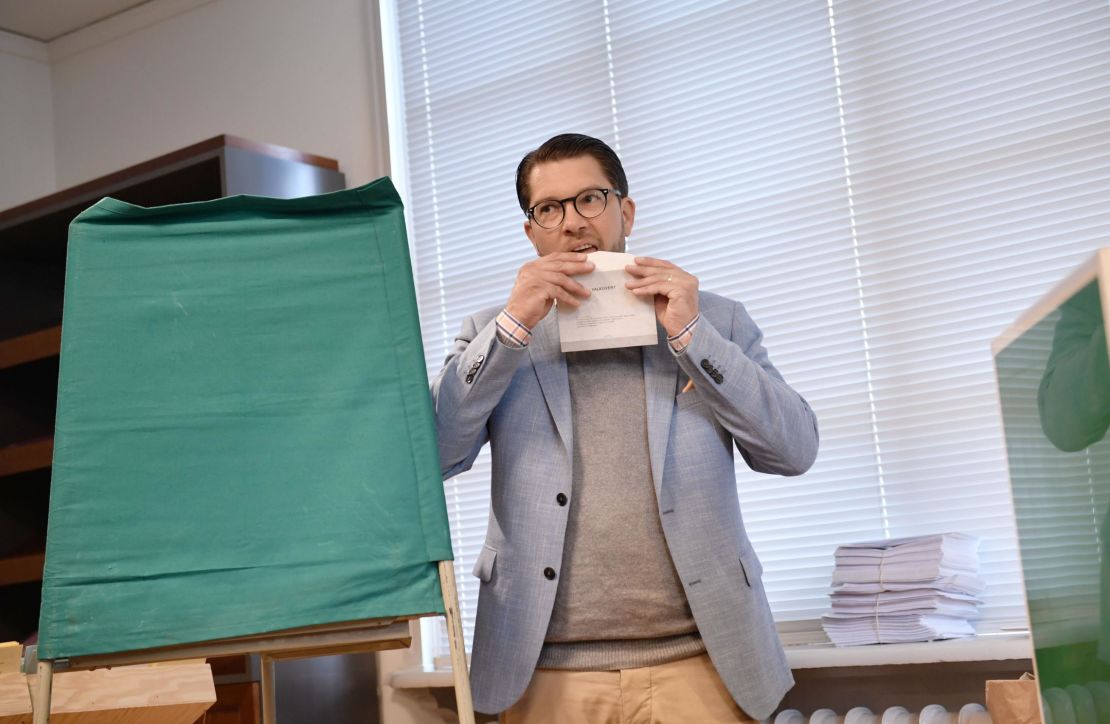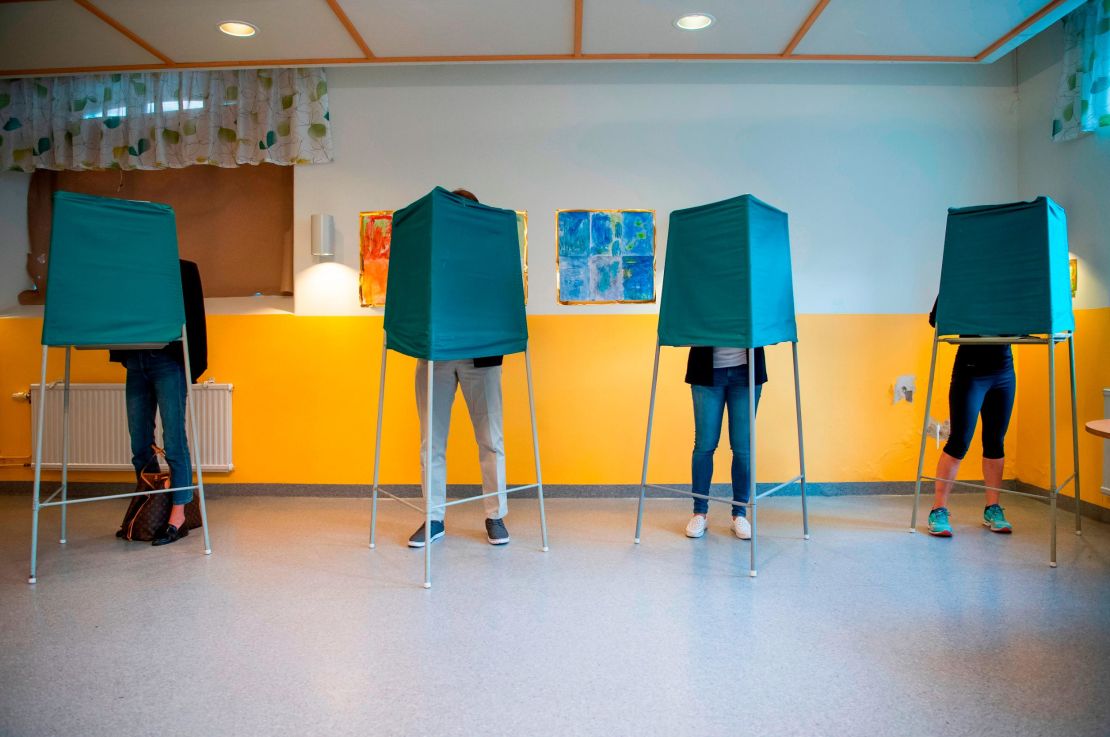The Swedish general election is too close to call as two centrist coalitions race to a photo finish, their votes split by a surge in support for a far-right party with roots in the neo-Nazi movement.
With votes in more than 98% of around 6,000 districts already counted, Prime Minister Stefan Löfven’s ruling centre-left Social Democrats and their allies have taken 40.6%, a hair’s breadth in front of the center-right alliance’s 40.3%. With just around 100 districts left to count, those numbers could change only marginally.

The unaligned far-right Sweden Democrats have capitalized on growing anti-migrant sentiment after an influx of refugees in 2015 rattled the political landscape in one of the world’s most liberal nations. The party gained 17.6% of the vote, up from 12.9% in the previous 2014 elections, showing the Scandinavian country steering to the right.
An exit poll by state broadcaster SVT had earlier forecast a “dead heat” between the two alliances. The final results will determine whether Europe will hang onto one of its few left-wing governments.
The exit poll showed the Sweden Democrats would become the second-biggest party in the country – but with almost all the districts counted, that outcome appears impossible.
The Sweden Democrats’ leader, Jimmie Åkesson, celebrated his party’s boost as a major electoral success in a speech after most of the votes had been counted.
“We are not satisfied. We see that we are this election’s winner, but now we enter a new mandate period and now we are going to get influence over Swedish politics for real,” he said, according to Expressen TV.
The results push the country into a period of uncertainty, and long political negotiations are undoubtedly about to begin.
Migration a game-changer
The results show Sunday’s vote was one of the toughest challenges in decades to Sweden’s social democracy, characterized by its high tax rates and substantial welfare system, aimed at reducing inequality through social inclusion.
The rise of the far right in Sweden mirrors similar trends in other European nations following the mass migration of refugees to Europe in 2015, at the height of the Syrian war. Anti-migrant parties in Germany, Austria, Denmark, France, Hungary and Italy have all made gains in recent years.
But Sweden was once particularly welcoming to refugees. The issue of migration became highly politicized after the country of 10.1 million people took in more than 160,000 asylum-seekers in 2015 alone.
The Sweden Democrats want to freeze migration and have pushed for the country to leave the European Union.
Senior Social Democrats official Anders Ygeman conceded that the crisis had damaged his coalition’s prospects.
“We paid the price for being in government. We suffered from the refugee crisis in 2015. That’s why the Sweden Democrats are as big as they seem to be,” he told CNN in Stockholm.
Voter Anton Loin said Swedes were increasingly looking for political alternatives. “I think that it shows that people are disappointed with how the country is run, and they are rooting for something, they want something different, but it’s not necessarily the best kind of different,” he said of the far right’s rise.
Voter Tuva Sundh said she was concerned about integration. “But I’m not sure about the way of the Sweden Democrats. I think it’s healthy to have debate. But I do think it’s become too heated in this election.”
Leaders in Brussels will be disappointed with the party’s surge ahead of the European Parliament’s elections in May next year, as they bid to discourage euroskepticism following Brexit, and as populist parties form alliances to shake up the EU establishment ahead of the vote.
Far-right populists in Europe, however, were celebrating the Sweden Democrats’ rise.
Marine Le Pen, leader of France’s far-right euroskeptic National Rally, said on Twitter: “Another bad night for the European Union in perspective. The democratic revolution in Europe is underway!”

The Social Democrats and its allies have tried to appease anti-migrant sentiment in the country by urging more integration programs and resources for refugees in marginalized communities, and to help them access education.
The center-right Moderates had pledged to give more funds to the police, and pushed for Swedish migration policy to fall in line with laws in other EU countries, such as Denmark and Germany. This would mean that migrants won’t be able to stay unless they can prove that they can support themselves, enabling them to get a permanent residence permit.
They were also looking at ways of more quickly incorporating migrants into the workforce, such as promoting “simple jobs,” a reference to work that can be obtained with only an elementary education.
CNN’s Atika Shubert and journalist Linnéa Wannefors reported from Stockholm. CNN’s Angela Dewan wrote from London and Samantha Beech contributed from Atlanta.




